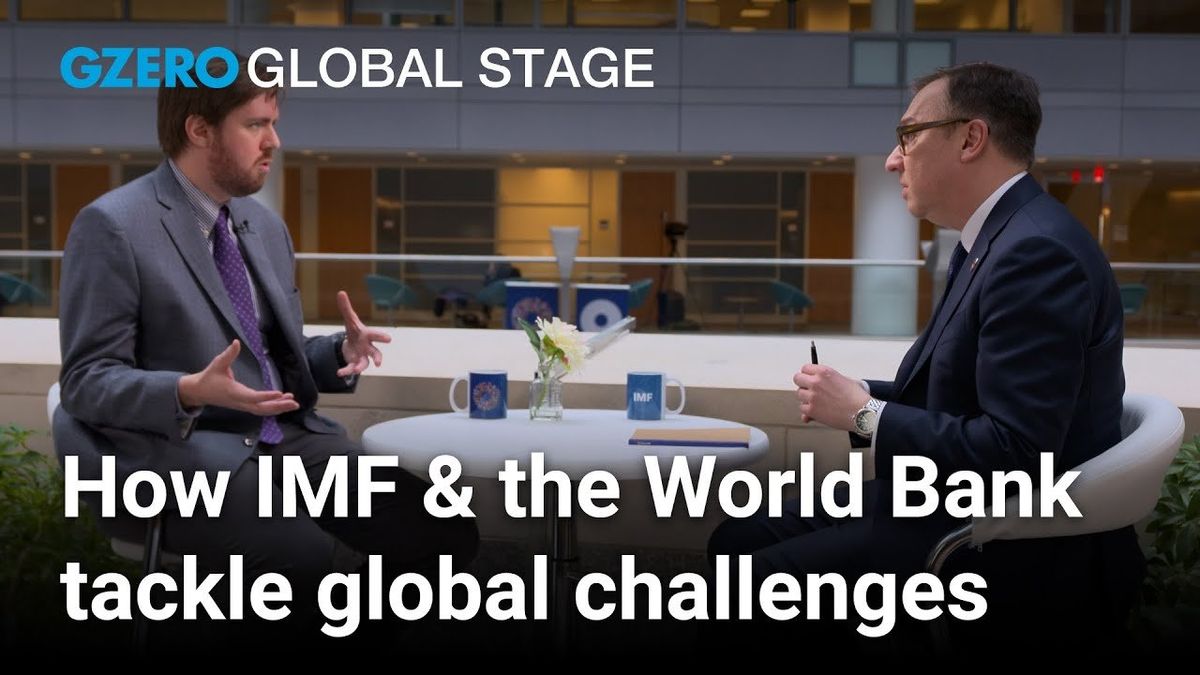The International Monetary Fund and World Bank’s Spring Meetings in Washington have told a tale of two economies: In the developed world, inflation is falling, and recession looks unlikely. But many of the world’s poorest countries are struggling under tremendous debt burdens inflated by rising interest rates that threaten to undo decades of development progress. That means these key lenders of last resort have their work cut out for them.
The good news? There’s a proven model, as GZERO Senior Writer Matthew Kendrick discussed with Tony Maciulis at a Global Stage event while reporting on the meetings. Somalia, once the byword for a failed state, managed to implement massive reforms to its financial system to meet the guidelines of the IMF’s Highly Indebted Poor Countries Initiative.
“Because they met those guidelines — while still in a very fragile environment where they were fighting Islamic extremists in the country, dealing with semi-autonomous zones in the north — they managed to discharge 90% of their debt,” said Kendrick. “It's proof that even in very fragile countries, if, as the Somali finance minister said yesterday, you build these projects into nationally unifying efforts to build a better future, they can have tremendous success.”
Kendrick also cited comments from experts calling for the IMF and World Bank to change how they view humanitarian work more generally and not back away from countries amid war. “Conflicts are becoming a day-to-day part of our lives all over the world,” he says. “That means that the IMF and World Bank, in order to make progress on development, have to figure out ways to work with the institutions in these countries as they are also in conflict.”
For more of our 2024 IMF/World Bank Spring Meetings coverage, visit Glogal Stage.
- IMF says economic picture is rosy, but how does it look from the bottom? ›
- Debt limits of rich countries hurt poor countries' growth, says World Bank's Malpass ›
- What We're Watching: Nigerians vote, Biden's World Bank pick ›
- World Bank economist: The poorest are getting poorer globally ›
- With electric bills soaring, should the EU cap natural gas prices? ›
- Why Africa's power partnership with the World Bank should attract investors - GZERO Media ›


















